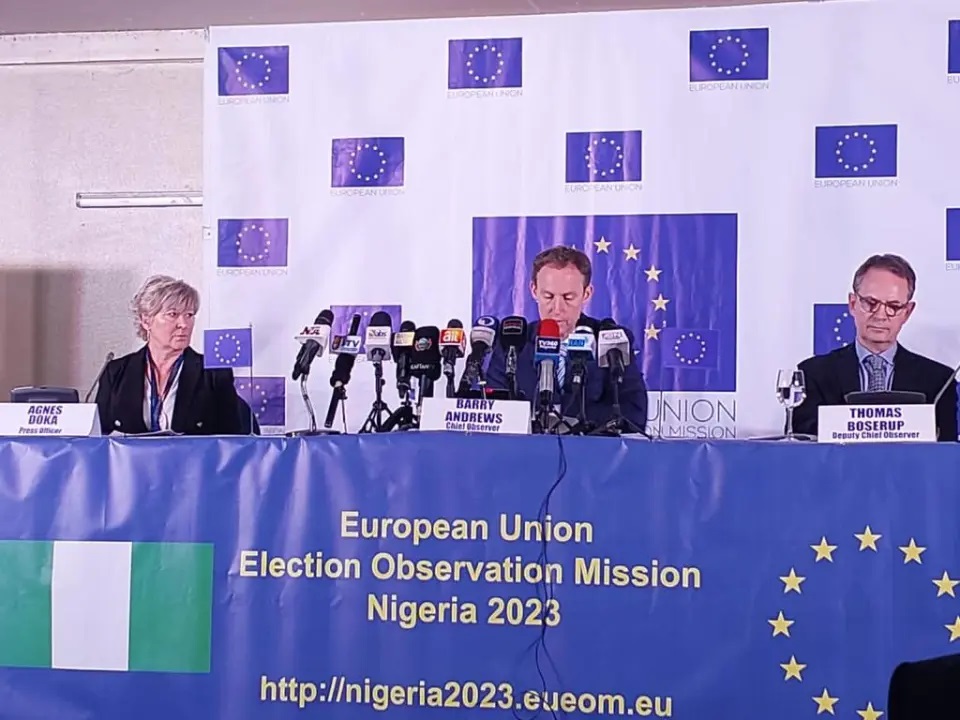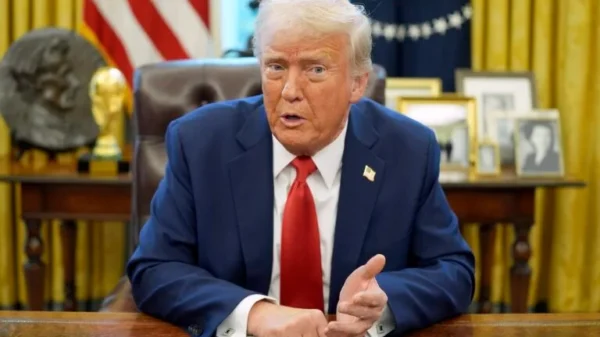European Union (EU) Election Observation Mission to Nigeria’s 2023 general election has expressed worry over the “obstruction and use of organised violence” during Saturday’s state elections.
The EU Mission said it was particularly concerned that thugs “serving different interests” were used to “stop voters from expressing their free will”.
The EU Chief Observer, Barry Andrews, stated this in Abuja while presenting the Mission’s second preliminary statement on the process of the election across the states of the federation.
He singled out Lagos and Kano states as the worst-hit by violence during the polls, while vote-buying was witnessed in some other parts of the country.
He conceded that INEC introduced some corrective measures ahead of the polls, such as ensuring a timely delivery of sensitive materials, as well as introducing the use of election technology; but criticised the electoral body for “lacking transparency”.
Mr Andrews said “public confidence and trust” in INEC were “severely damaged” on February 25 due to lack of transparency and “operational failures” in the conduct of the Presidential and national assembly elections, noting that the polls revealed systemic weaknesses in the country.
The Mission also tasked the country to work hard to address the challenges confronting the electoral system in the future.
Mr Andrews acknowledged that voting started on time with INEC ad-hoc officials “present and ready to serve the voter”, but bemoaned what he described as disruption of polling on election day by “multiple incidents of thuggery and intimidation of voters, polling officials, observers and journalists”.
On incidents of “misuse of administrative resources” by politicians and their cohorts, the EU Observer Mission decried how such resources were channeled through “various financial and in-kind inducements to voters”, giving an undue advantage to the party in power.
Mr Andrews also said there was “clear underrepresentation” of women as candidates, which demonstrated a “stark lack of internal party policies to support constitutionally prescribed inclusion” – contrary to Nigeria’s international commitments to eradicate discrimination against women.
Credit: Radio Nigeria
![]()






























































